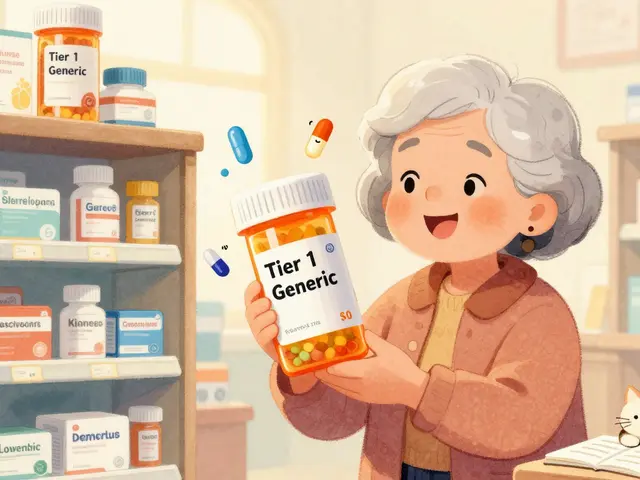
Dietary Supplements: What They Are and How to Choose the Right One
If you’ve ever walked down an aisle full of pills and powders, you know the choices can feel overwhelming. A dietary supplement is any product that adds vitamins, minerals, herbs, or other nutrients to your regular diet. They’re not meant to replace food but to fill gaps when you can’t get enough from meals alone.
Why People Take Dietary Supplements
Most folks start a supplement because they want extra energy, better immunity, or stronger bones. Others use them to support specific goals like muscle growth or joint comfort. For many, it’s simply “just in case” – a safety net for busy weeks when cooking gets skipped. The key is understanding your personal reason; that guides which ingredient list makes sense.
Another big driver is the belief that natural ingredients are safer than prescription drugs. While some herbs have solid research behind them, others lack strong proof. Knowing the difference helps you avoid spending on hype and focus on what actually works for you.
Tips for Picking Safe, Effective Supplements
First, check who makes the product. Look for manufacturers that follow Good Manufacturing Practices (GMP) and have third‑party testing from groups like USP or NSF. A seal of approval tells you the label matches what’s inside.
Second, read the label closely. Pay attention to the amount of each nutrient – too little won’t help, too much can cause side effects. For example, high doses of vitamin D can lead to calcium buildup, while excess iron is risky for people without a deficiency.
Third, consider your health conditions and medicines. Some supplements interact with prescription drugs; fish oil can thin blood, and St. John’s wort may lower the effectiveness of birth control pills. A quick chat with your doctor or pharmacist can clear up any red flags.
Fourth, start small. If you’re trying a new product, begin with half the recommended dose to see how your body reacts. This cautious approach reduces the chance of unpleasant reactions and lets you gauge real benefits.
Finally, stay realistic about results. Supplements can support health, but they won’t fix poor diet or lack of exercise on their own. Pair them with balanced meals, regular movement, and good sleep for the best outcome.
Remember, the supplement world is huge, but you don’t need to try everything. Pick one or two that match your goal, stick with reputable brands, and give your body time to respond. With these steps, you’ll get more out of what you take without falling into the trap of unnecessary pills.
-
22 Sep

-
22 Sep

Black Hellebore Supplement: Top Health Benefits and How It Beats Other Herbs
Discover why the black hellebore supplement tops the list for antioxidant, anti‑inflammatory and cardiovascular support, and how it compares to other popular herbs. -
15 May

Achieve Faster Weight Loss and Wellness with Taumelloolch: The Ultimate Dietary Supplement Guide
Discover how Taumelloolch can help you reach your health and fitness goals faster. This article dives deep into what makes this supplement unique, how it works, and why so many people in Australia are turning to it. Packed with practical tips, real-world facts, and easy explanations, you'll get a clear picture of Taumelloolch's benefits and how to make the most out of it. Get ready to cut through the confusion and find out what actually works. Suitable for anyone curious about effective supplements and faster results. -
26 Apr

Immortelle: Why This Supplement Is Suddenly on Everyone's Radar
This article breaks down why Immortelle has quickly become the buzzword in the world of dietary supplements. Discover what Immortelle is, why it's getting so much attention, and how it could fit into your daily routine. Learn about the science behind its benefits, what makes it different from other herbs, and how to use it safely. You’ll pick up helpful tips and honest info to see if it’s actually worth all the hype. No fluff—just real, straightforward facts. -
23 Jan

Revitalize Your Diet with Capers: The Latest Wellness Craze
Discover how capers, tiny green flavor bombs, are quickly becoming the next big thing in the wellness world. These little buds pack a nutritional punch, offering antioxidant properties and essential vitamins. Perfect for those looking to enhance their meals and health simultaneously, capers are gaining a reputation as a trendy dietary supplement. Learn exciting ways to incorporate them into your diet and improve your overall wellbeing. -
6 Sep

Boost Your Brain Power with Forget-Me-Not: A Proven Cognitive Supplement
Discover the benefits of Forget-Me-Not, a dietary supplement designed to enhance cognitive functions. This article explores its ingredients, benefits, and effectiveness, supported by scientific research. Learn about how it can boost memory, concentration, and overall brain health. -
12 May

Discover the Marvels of Ackee: The Supplement Revolutionizing Diets
Dive into the benefits of Ackee, a dietary supplement that's taking the health world by storm. Learn about its nutritional values, health benefits, cultural significance, usage tips, and real-life success stories. Could this exotic fruit be the game-changer your diet needs? -
31 Jul

Guaiac Wood: The Secret Ingredient Your Dietary Supplement Routine Needs
Hey there, health fanatics! You'll never guess what the latest secret ingredient to boost your dietary supplements is - it's Guaiac Wood! Yes, you heard it right, that exotic sounding thing is actually a tree resin known for its potent antioxidant properties. It's like the superhero of the supplement world, fighting off those villainous free radicals! So, if you're looking to level-up your health game, adding a dash of Guaiac Wood to your daily routine just might be the plot twist you need! -
21 Jul

Brewer's Yeast: The Nutrient-Rich Dietary Supplement You've Been Missing Out On
In my latest blog post, I've explored Brewer's Yeast, a nutrient-dense dietary supplement that many of us have overlooked. Packed with essential proteins, vitamins, and minerals, it's a wonderful addition to sustain a healthy diet. I've found it to be particularly beneficial for those trying to boost immunity, enhance digestion, and improve skin health. Plus, it's versatile enough to easily incorporate into your meals. Don't miss out on this hidden gem in the world of nutrition! -
12 Jul

Revolutionize Your Health with Butanediol (Bd): The Must-Have Dietary Supplement
In my latest blog post, I delve into the health benefits of Butanediol (Bd), a dietary supplement that's creating a buzz in the wellness community. This supplement can truly revolutionize your health, offering benefits like improved energy levels, enhanced metabolism, and better brain function. I discuss how it works, the science behind it, and how to incorporate it into your daily regimen. You'll also find tips on the recommended dosage and potential side effects. It's a must-read for anyone looking to boost their health game with this promising compound.






